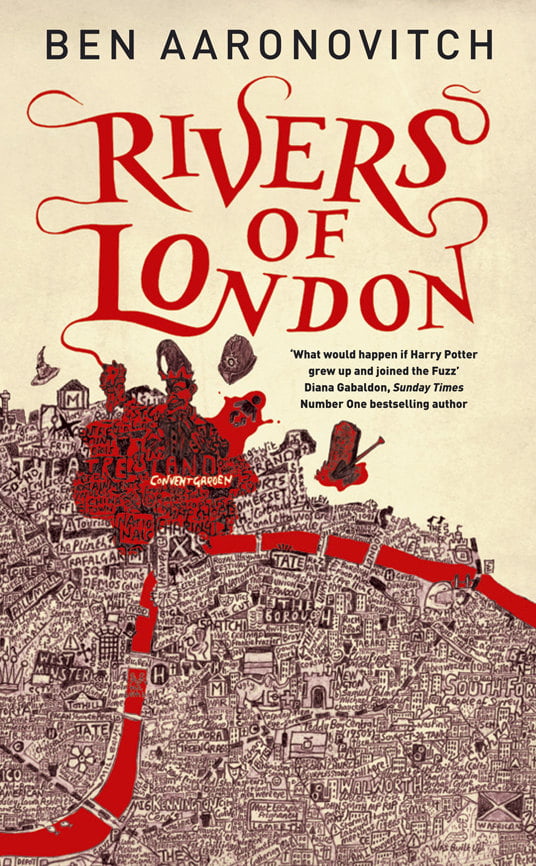By Ben Aaronovitch
Peter Grant is a young constable in the Metropolitan Police Service; while standing guard over a crime scene of a murder in Covent Garden in the middle of the night, he talks to a witness to the crime. The only trouble is that the witness is a ghost. This leads Peter to discover that there is magic in the world and that there is a special unit within the police dedicated to controlling all aspects of the supernatural, including the god and goddess of the Thames, vampires, and some sort of demonic entity that is possessing Londoners and causing them to kill, and he has become the newest member and trainee wizard to the only other member of the special unit dedicated to policing magic.
Despite the fact that this book is obviously a fantasy book, it is set firmly in the real world by two devices. The first is that this is primarily a police procedural: the book is told from the point of view of a policeman who has recently come out of training, with lots of little details about the police service, behind the scenes and the day-to-day workings of an investigation; the paranormal aspects are appended on this. This grounds the book and provides a solid grounding for it to take flight in the magical side, all of which make it a better book. The second aspect is the London-ness of this book: it is told by someone who knows and loves London, something that shines through in the prose and the dialogue. The geographical detail adds solidity and colour to the book: the story happens in real places and these are portrayed accurately (The Folly, ‘the official home of English magic since 1775’ and residence for our wizards, is based in Russell Square; when travelling into the centre of town, they even pass the Forbidden Planet shop on Shaftesbury Avenue), so that you know that it is happening in the real London, in places I recognise and know.
Aaronovitch tells the story with wit and pace in an enjoyable first-person narrative, with a nice turn of phrase and a very firm grasp on the rules of this reality. He does a great job of world-creating, carefully defining his story but in an engaging fashion that allows for more exploration (the founder of English magic is Sir Isaac Newton, who first systemised the practice of magic, which is a nice touch). He has also done something very interesting with his lead character: he is black (or, as he describes himself using police identification, ‘I tend to jump between IC3 [black people] and IC6 – Arabic or North African’; his mother is from Sierra Leone and his dad is a semi-famous jazz musician). This isn’t a big deal in the novel; it’s just part of it, but it’s nice to see a modern urban fantasy where the colour of the lead’s skin isn’t white. It gives an extra dimension (with relation to racism within the police service) but it isn’t an issue within the story or forced as an important point that needs to be addressed at all times. I’ve read that it was a source of contention when the American cover was published, which has the lead character on the front but in shadow, as if trying to hide the colour of the book’s protagonist. I’ve always found this strange in sci-fi – the recent racist tweets about the colour of various characters in The Hunger Games seems unbelievable to me because I’ve always thought of sci-fi as colour-blind in that respect: in a genre that regularly deals with aliens, the colour of human skin seems irrelevant.
I really enjoyed Rivers Of London: it’s a good read about an interesting character in an intriguing setting that mixes fantasy with the police novel to great effect. As soon as I finished the first book, I bought the next book in the series – that’s a recommendation for you.




